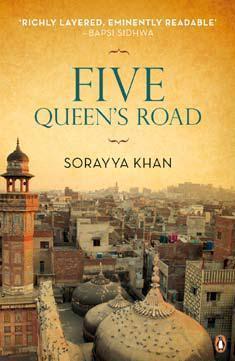
Rooftops of Tehran
Book Description
On the sun-drenched rooftops of Tehran, a young boy dreams of freedom while the shadows of revolution loom large. Amidst vibrant summer days filled with laughter, the world teeters on the brink of chaos, turning friendships into battlegrounds and love into an elusive whisper. As ideals clash and loyalties are tested, the heartache of longing clashes with the desperate hope for change. With every moment, danger creeps closer, threatening to shatter dreams and reshape destinies. Will the bonds forged in innocence withstand the relentless tide of history? In a world where the sky holds secrets, who will emerge unscathed?
Quick Book Summary
"Rooftops of Tehran" by Mahbod Seraji is a poignant coming-of-age novel set in 1970s Iran, on the eve of a revolution that will forever change the nation. The story centers on Pasha Shahed, a teenager whose days are spent on his rooftop with best friend Ahmed, dreaming of a life with his secret love, Zari. But their idyllic youth is shattered by the political reality of their times, particularly when Pasha’s mentor, known as Doctor, is targeted by the secret police. As Pasha navigates the complexities of love, loyalty, and loss against a backdrop of repression and danger, he is forced to confront the cost of courage and the painful choices that define adulthood. The novel deeply explores the intersections of personal dreams and collective turmoil, capturing the vibrant spirit—and the heartbreak—of a generation caught in history’s storm.
Summary of Key Ideas
Table of Contents
Coming of Age Under Oppression
The story unfolds in 1973 Tehran, where teenage Pasha finds refuge on the rooftops above his family’s modest home. Together with his witty best friend Ahmed, he savors the simple pleasures of youth—banter, mischief, and the blossoming of first loves. Their sanctuary, however, is shadowed by the realities of an oppressive regime and the looming political upheaval that seeps into every life. Pasha’s affection for Zari, engaged to his older friend and neighbor Doctor, becomes the emotional core around which his internal struggles revolve.
Love and Sacrifice Amidst Turmoil
As the Iranian secret police—SAVAK—make their presence increasingly felt, Doctor emerges as a guiding figure not only for Pasha, but for the neighborhood. Doctor’s quiet defiance and intellectualism inspire hope but also attract danger. When Doctor is arrested and subsequently disappears, the fallout ripples through Pasha’s circle, testing friendships and exposing the thin line between safety and peril. Pasha's guilt over his feelings for Zari grows, and he finds himself wrestling with responsibility and helplessness amidst the volatility.
Friendship and Loyalty Tested by Revolution
The relationships at the heart of the story—between Pasha and Ahmed, Pasha and Zari, and Pasha and Doctor—highlight the enduring power of human connection even as they are repeatedly strained. The rooftop, once a symbol of youthful innocence and dreams, becomes a vantage point from which Pasha witnesses both the beauty of hope and the brutality of loss. The secrecy surrounding his love for Zari adds a tragic dimension, as cultural expectations and personal loyalties collide.
The Loss of Innocence
The revolution’s approach brings mounting tension and a series of devastating events. Pasha is forced to confront not only the political realities of his country, but the consequences of personal actions and the irrevocable losses that make up maturity. The transformation from innocent adolescence to a more somber adulthood is marked by regret, sorrow, and the sobering responsibilities of living under tyranny. Through heartbreak and guilt, Pasha comes to terms with what it means to protect those he loves and the inevitability of change.
Resilience and Hope in the Face of Tragedy
Despite the pervasive sense of danger and the erosion of innocence, the novel ultimately affirms the resilience of the human spirit. Pasha’s longing for a better world, his empathy, and his commitment to memory ensure that hope endures, even in tragedy’s wake. "Rooftops of Tehran" eloquently captures both the lush beauty and the harsh restrictions of pre-revolutionary Iran, offering a deeply personal portrait of love, sacrifice, and the universal yearning for freedom.
Download This Summary
Get a free PDF of this summary instantly — no email required.





